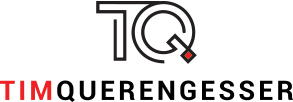This is a bit of a rant inspired by a tweet, which in turn was inspired by news.
Today, reporter Scott Johnston tweeted that Global News has laid him off. Johnston, who reports for Edmonton’s 630CHED, which Global owns, has been a reporter for 27 years. If you ever go to Edmonton City Hall, you almost always see him there. Johnston’s very much a reporter from the old mold — covering his beat, reporting near everything that comes up.
Scott Johnston (left) was the person who didn’t miss anything at city hall. Photo: Mack Male/Flickr
Having tried to emulate this old-school approach when I had the Yukon legislature beat at the Yukon News, back in 2005-2006 (receipts here), I can relate to how much work this is, how nuanced your understanding of issues becomes, how essential your reporting of often mundane, banal facts is not only to keep power in check but keep people on the outside informed. Our system depends on well-informed actors making reasonably well-informed decisions.
That’s why I see this as a dark day.
As many city councillors will tell you, their experience at the doors when campaigning is that voters are upset about things, but aren’t at all clear which level of government is responsible. Sure, this goes all ways, and isn’t unique to city politicians: It’s doubtful federal candidates in Edmonton don’t hear complaints about potholes, or hospitals, or that provincial ones don’t hear complaints about Don Iveson.
Still, city politics and issues are unique in that cities are limited to what they can do by the province. Edmonton can’t unilaterally decide to bring in new ways to raise money to pay for infrastructure, for example. Instead, it has limited tools and lots of direct contact with the often angry public. So councillors at the doors hearing anger have even less agency to do much about it.
The reason today is particularly dark is because the more we get away from fact-based discussions on city issues in Edmonton, the more people who work outside the world of facts and fairness will be rewarded. Which is a polite way to say the more people who manipulate and spin will see opportunity.
“As many city councillors will tell you, their experience at the doors when campaigning is that voters are upset about things, but aren’t at all clear which level of government is responsible. ”
For example, almost all discussions I’ve seen on social media about city “waste” point to things like the funicular and the proposed gondola. The first example saw Edmonton spend just $1.6M of the total $24M cost; the latter, regardless of whether you think it’s a wise idea or not, is currently not going to cost the city a dime. No matter: Both are now examples angry residents point to when they express frustration with city “pet projects.”
We’re seeing the opportunists realize ignorance offers rewards. We already have one city councillor who screams about bike lanes but could care less about Edmonton debt-financing the Yellowhead expansion to the tune of $510M.
Without reporters like Johnston, offering daily, ubiquitous coverage of each and every city discussion and issue, we should expect this worrying trend to accelerate.
*I’ve amended the cost of the funicular from the first draft I posted





